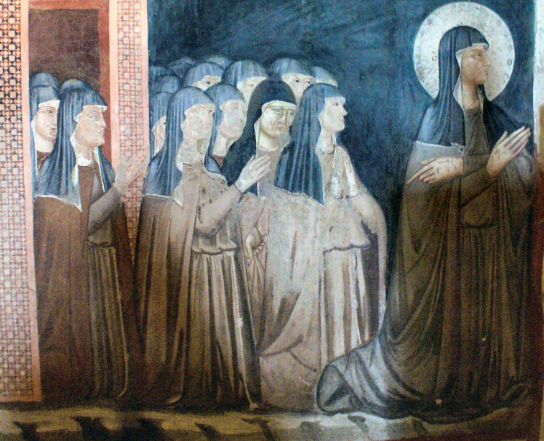The Role of Saint Clare in Monastic Reform
Saint Clare of Assisi, founder of the Poor Clares, played a pivotal role in the transformation of female monastic life in the 13th century. Her influence is not only crucial for understanding the development of monasticism but also highlights the significant contributions of women in religious reform. In this blog post, we will explore the life of Saint Clare and her lasting impact on monastic reform.
Fostering Spiritual Simplicity
One of Clare’s most significant contributions was her commitment to living a life of austere simplicity. Inspired by the teachings of Saint Francis, she emphasized the importance of poverty and detachment from worldly possessions. Clare’s Rule of Life not only guided her community but also provided a framework for other religious orders seeking to adopt a more simplified lifestyle. By championing a return to the roots of Christianity and focusing on spiritual rather than material wealth, Clare helped reinvent the ideals of monastic life during her time.
Empowerment of Women in Monasticism
Clare’s establishment of the Poor Clares marked a breakthrough for women in monastic settings, empowering them to take on leadership roles traditionally reserved for men. Although women had been part of monastic communities, Clare created a unique space where they could thrive under their own governance. Her insistence on female autonomy in matters of spiritual practice and community life enabled women to engage with their faith deeply and meaningfully. Through her leadership, Clare became a beacon of hope, illustrating that women could contribute equally to the monastic experience.
Legacy of Spiritual Leadership
Clare’s influence extended far beyond her own community. As her ideals spread throughout Europe, many religious orders began to adopt elements of her approach, reflecting a broader trend toward reform in the Church. The Rule of St. Clare inspired not just Poor Clares but also other female communities seeking to blend contemplation and active service in their ministries. Her remarkable legacy is seen today in various forms of religious life, highlighting the lasting impact of her spiritual vision and commitment to reform.
In conclusion, Saint Clare’s role in monastic reform is a testament to her spiritual vision and dedication to a life of simplicity and empowerment. Her efforts not only transformed her own community but also paved the way for future generations of women in religion. If you’re interested in learning more about her life and impact, consider exploring her writings or visiting sites dedicated to her legacy. There’s much to discover about this remarkable figure in monastic history!

